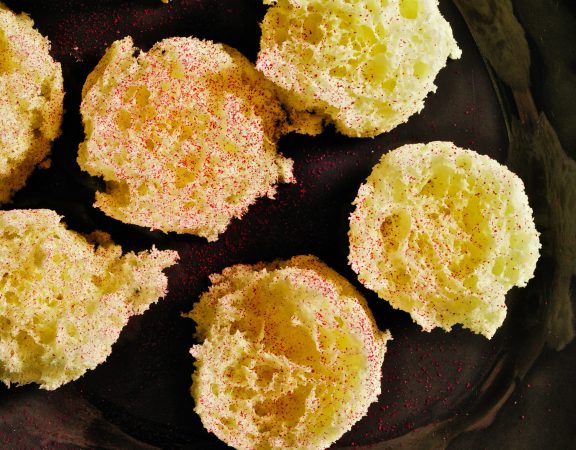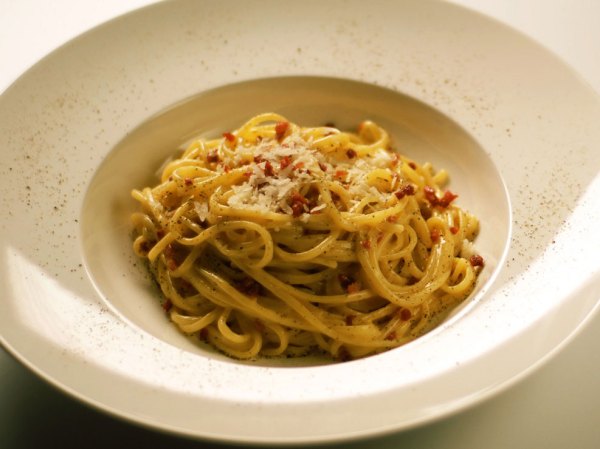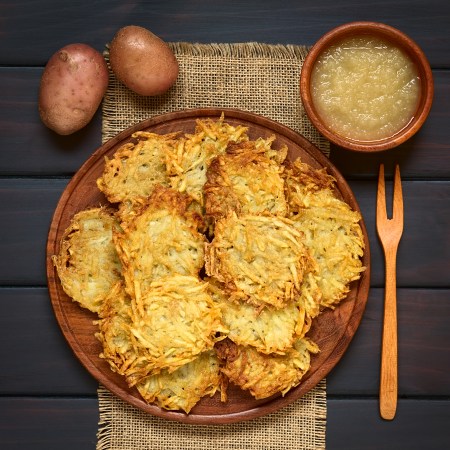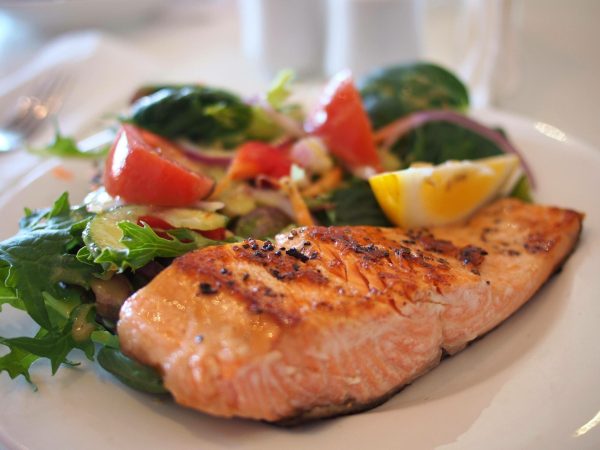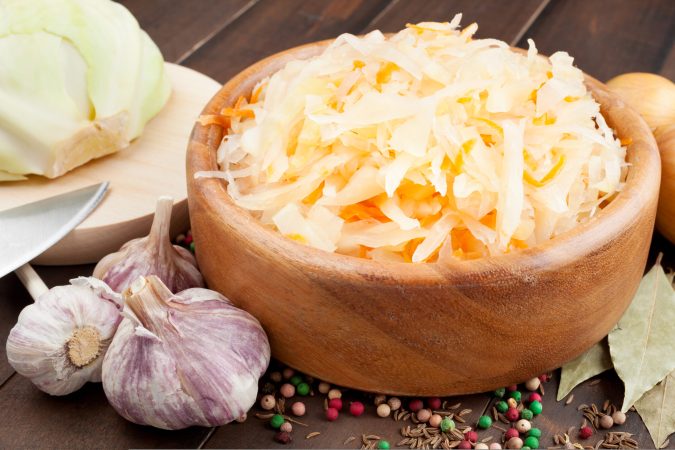

Pretty much everyone who’s ever eaten a frozen, store-bought veggie burger has been disappointed by one. And any beef burger fan who’s still reading is probably wondering how anyone could tolerate a patty of mashed up vegetables with a tendency to be both crumbly and soggy. I should know: That was me up until I made these.
Veggie burgers aren’t a food I’ve ever eaten by choice, but it’s No Red October at PopSci, and I wanted to see if I could make one I actually enjoyed. After all, I taught myself to like broccoli by cooking it well myself, so I figured there might be hope for these meatless patties.
In true DIY fashion, these burgers are highly customizable. Don’t like cauliflower? Swap it out for broccoli. Not a fan of kale? Spinach will do just fine. As long as the amounts stay roughly the same, you can use almost any vegetable. Cooked rice, too, is an easy substitute for quinoa, and the spice blend can be whatever you desire. I used ketchup because I hoard the little packets I get when I order takeout, but tomato paste works, too.
What follows is a recipe I put together myself, based on what was in my fridge and pantry, plus what I found to be common veggie burger ingredients and steps included in recipes across the internet. Some of the more interesting how-tos I found along the way were on Inspired Taste, How Sweet Eats, and The Kitchn.
Stats
- Total time: About an hour.
- Cost: $10-$30

Ingredients
- 8 ounces of mushrooms
- 1 carrot
- 1 1/2 cups of cauliflower
- 1/2 a small onion
- 2 leaves of kale
- 4 cloves of garlic
- 1/4 cup of fresh herbs
- 1/4 cup uncooked quinoa
- 1 teaspoon chipotle pepper
- 1 teaspoon chili powder
- 1 teaspoon cumin
- 1 teaspoon garlic powder
- 1 teaspoon paprika
- 1/2 teaspoon black pepper
- 1 (15-ounce) can of black beans
- 1/4 cup of walnuts
- 1/2 cup breadcrumbs
- 2 eggs
- 3 tablespoons ketchup
- Salt
- Olive oil for cooking
Tools
- Baking pan
- Cutting board
- Chef’s knife
- Small saucepan
- Food processor
- Small baking spatula
- Frying pan
- Cooking spatula
- Large bowl
- Cast iron pan
- Aluminum foil
- Paper towels
Instructions
1. Prepare to cook. Preheat your oven to 425 degrees Fahrenheit (220 degrees Celsius). Line your baking pan with aluminum foil and pour a quarter-sized pool of olive oil into the pan. Use a paper towel to smear it around, coating the foil entirely. The paper should absorb any excess oil.
2. Prepare the vegetables. Rinse and dry the mushrooms, carrot, cauliflower, onion, kale, and herbs. Slice the carrot, cut up the cauliflower, dice the onion, strip the kale leaves off the stems, peel and chop the garlic, and chop the herbs.
3. Cook the quinoa. Pour the uncooked quinoa into a small saucepan with a 1/2 cup of water. Turn the heat to high and let it boil. Once you’ve got a pan full of rolling bubbles, turn the burner down to low, cover the pan, and let it cook until the water has been absorbed. This should take about 10 minutes. When it’s done, take it off the heat and let it cool.
4. Put the mushrooms, carrot, and cauliflower in the food processor. While the quinoa cooks, get these ingredients ready to go. I used baby bella ‘shrooms, and about 11 of them totaled 8 ounces. Once these vegetables are in, add your spices and half the garlic. Season everything with a pinch of salt and 1/2 a teaspoon of black pepper.
- Note: If you have a food processor with long blades, use that. Something with shorter blades, such as a tall blender, might not have the reach to adequately chop everything up.
5. Grind the vegetables. Put the lid on your food processor and pulse it between 10-20 times, until the veggies look coarse. If some of the mixture sticks to the sides, stop the blades and use the baking spatula to scrape it off.

6. Roast the vegetables. Once you’re satisfied with how the vegetables look, pour them into the prepared baking pan and flatten them into an even layer. Pop ’em in the oven and let them cook for about 20 minutes (but check around 15). They’re done when they’re brown and you can’t see any excess moisture. When it’s time, take the pan out of the oven and set it aside. Getting rid of the vegetables’ natural water this way should keep your patties from being too soggy.
- Note: Don’t clean or put away the food processor. You’re going to need it again.
7. Cook the onion and beans. While the ground-up vegetables roast, get another quarter-sized drop of olive oil going in your frying pan over medium-high heat. When it’s hot, toss in the remaining garlic and cook it until it’s fragrant—about 30 seconds. Add the onion and let it caramelize, occasionally mixing everything around with the spatula—about 5 minutes. Once the onions are nice and brown, pour in the entire can of beans. Season everything in the pan with salt and pepper. Cook these until they’re pretty dry, which should take about 15 minutes.
- Note: You don’t absolutely need two pans for this recipe and can do it all in the cast-iron, or whatever you plan to cook the burgers in, but the beans tend to stick to the pan as they dry out, so you might have to do a bit of cleaning in the middle of everything if you try to do everything in one pan.
8. Grind up the walnuts, kale, and herbs. While everything cooks, dump the walnuts, kale, and herbs (I used cilantro) into your food processor. Pulse it about 10 times to get everything nicely chopped.
9. Add the vegetables. When the vegetables in the oven and the beans in the pan are ready, put them in the food processor with the coarsely ground nuts, kale, and herbs. Dump in the breadcrumbs, the eggs, and the ketchup. Season with a pinch of salt. Combine it all with 5-10 pulses. Don’t overdo it—too much processing may make your burgers more brittle.
- Note: If you don’t want to use eggs, you can replace them with a variety of other ingredients. They’re just there to keep everything bound together. I used 1/4 cup of white miso in place of one egg as an experiment, but there are plenty of options out there. The miso burgers had a much more earthy, salty flavor than the ones I made with egg.
10. Add the quinoa. Pour your nearly complete patties into a large bowl and dump in the quinoa. Mix it around with a wooden spoon to get everything thoroughly combined. The grain will add some weight to your patties and give it a fairly meaty texture.

11. Form the patties. Each burger will use about one cup of the mixture, so scoop it out with your hands and mold the burgers into their final shape. Just form a ball in your hands and flatten them out between your palms. This will be a little bit messy. Place each one on a clean surface until you’ve made all of them.
12. Cook the burgers. Put a quarter-sized drop of olive oil in the cast-iron pan and let it get hot over medium heat. Plop the burgers into the pan and flatten them a bit with your spatula if they’ve lost any of their shape. Cook them for about 5 minutes on each side, or until they’re browned to your liking.
- Note: These burgers hold together pretty well, but they’re still a bunch of ground-up vegetables held together by eggs and breadcrumbs, so you’ll need to be careful when flipping.
13. Create your burger. Once the burgers are cooked, you can do pretty much anything you want with them. Put them on buns (I prefer to briefly toast my buns in the pan to crisp them up a bit), add some fixings, maybe a bit of ketchup, mustard, hot sauce, salsa—anything. Follow your heart.



